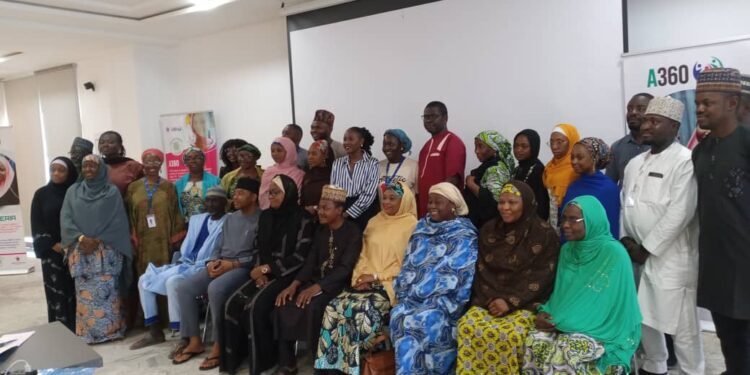By Israel Bulus, Kaduna
The Kaduna State Government has reaffirmed its commitment to adolescent and youth sexual and reproductive health (ASRH), describing it as a key pillar for achieving universal health coverage and unlocking the state’s demographic dividend.
Speaking at a policy dialogue and transition alignment meeting held in Zaria on Saturday, the Permanent Secretary, Ministry of Health, Dr. Aisha Sadiq, said the government is determined to mainstream ASRH across sectors and scale up tested interventions under the A360 Amplify Project, implemented by the Society for Family Health (SFH).
The event, themed “Adolescent and Youth Sexual and Reproductive Health and Development: A Path to Harnessing Demographic Dividends and Achieving Universal Health Coverage in Kaduna State,” brought together government stakeholders, civil society actors, development partners, and youth advocates.
Dr. Sadiq described the gathering as “pivotal” and in line with Kaduna’s long-term vision of empowering its youthful population estimated at over 60% of the state’s 8 million residents.
“Our shared vision is to ensure adolescents and youths are not only seen, but also served, supported, and empowered,” she stated.
“This population segment is not a burden, but a pillar of sustainable development and inclusive governance.”
Citing alarming statistics, she noted that nearly one in three girls aged 15–19 in Kaduna is either pregnant or already a mother. She described early marriage and low contraceptive uptake as persistent challenges, especially in rural communities.
“These are not just reproductive health concerns,” she said.
“They are matters of human rights, equity, and systems performance.”
Dr. Sadiq emphasized that Kaduna’s Health Sector Strategic Blueprint (2023–2027) prioritizes ASRH alongside education, economic opportunity, and access to quality healthcare.
She revealed that key next steps include integrating adolescent-friendly services into all tiers of healthcare delivery, expanding ASRH coverage under the Kaduna State Health Insurance Scheme (KADCHMA), and training frontline workers to offer non-judgmental, youth-friendly services.
Meanwhile, Kenneth Okoyneme, Health Policy Specialist with the Society for Family Health, highlighted the success of the A360 project particularly its Matasa mata Arewa model which targets married adolescent girls in northern Nigeria with a holistic approach to sexual and reproductive health.
“What we have seen in Kaduna is that adolescent girls, especially married ones, are beginning to make informed decisions about their health and broader life choices,” Okoyneme said.
He explained that while promoting modern contraceptive uptake is central, the project also addresses the economic well-being of adolescent girls, acknowledging that reproductive health cannot be tackled in isolation from issues like education, nutrition, hygiene, and income security.
“What SFH has done is to build on existing state structures rather than create parallel ones,” he said.
“We’ve strengthened the capacity of existing health providers to deliver youth-friendly services.”
He stressed the importance of a multi-sectoral approach that brings together government ministries and agencies to harmonize planning and implementation. According to him, this model allows for better resource allocation and a more coherent strategy for adolescent health and development, adding we’re seeing positive results.
“The state is responding, and the integration of these services into public systems shows promise for sustainability.”
Some of the articipants at the dialogue called on both government and partners to deepen collaboration, ensure funding continuity, and adopt a social lens that sees ASRH as a developmental priority.











